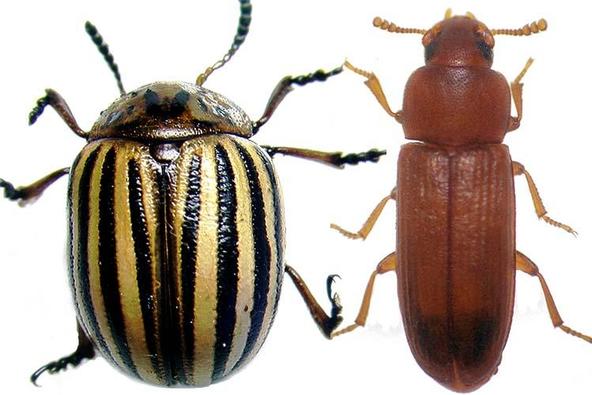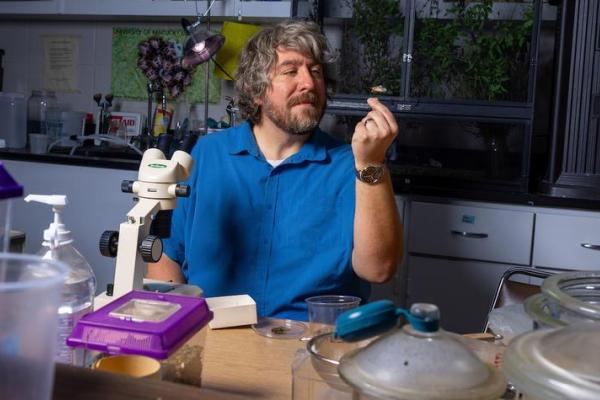UK Scientists Identify Important Biological Marker to Control Insect Pests

A University of Kentucky research team led by entomologist Subba Reddy Palli discovered a protein that plays a critical role in the effectiveness of RNA (ribonucleic acid) interference in beetles. This finding could improve the efficiency of this pest control technology and help manage resistance.
RNA interference, RNAi, is a process where RNA molecules constrain gene expression. It is very efficient in insects belonging to the order Coleoptera, which includes a variety of major pests such as the corn rootworm, Colorado potato beetle, pine weevil, powderpost beetle, Asian longhorned beetle and emerald ash borer. However, it has varying levels of efficiency in other insects.
“We wanted to understand why RNAi works so well in Coleopterans but not in other insects,” said Palli, chair of the UK Department of Entomology in the College of Agriculture, Food and Environment.
June-Sun Yoon, a recent UK doctoral graduate from the Palli lab and current Cornell University post-doctoral scholar, discovered the protein, and the researchers named it StaufenC, because it is only found in Coleopteran insects. Without StaufenC, RNAi does not work in these insects. Subsequent studies showed that a reduction in StaufenC levels is the major reason for RNAi resistance in the Colorado potato beetle cells.
This finding gives scientists a biological marker to quickly determine if RNAi works efficiently in a given insect and to monitor resistance. If researchers can find a way to transfer this protein to other insects, it could also be used to broaden the use of this technology.
Additional investigators on the project include UK post-doctoral fellows Kanakachari Mogilicherla, Dhandapani Gurusamy and Xien Chen and Shankar Chereddy, an undergraduate student in UK’s agricultural and medical biotechnology program.
The results were reported in the Proceedings of the National Academies of Sciences and available online at www.pnas.org/content/early/2018/07/26/1809381115.
Credits
Text by Katie Pratt (UK Public Relations & Marketing).

